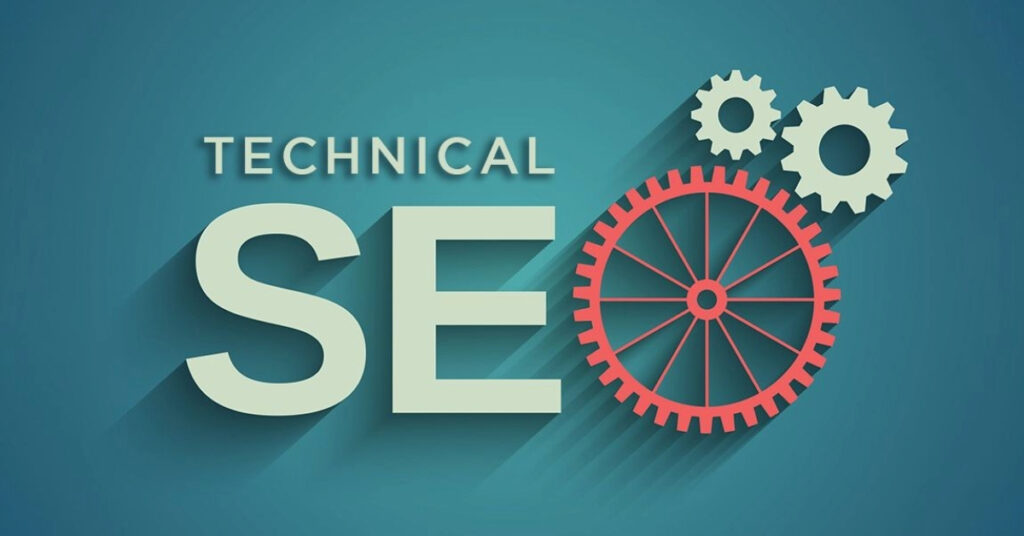The world of digital marketing is changing rapidly, and Artificial Intelligence (AI) is at the forefront of this transformation. With businesses striving to create high-quality, engaging content and improve search engine optimization (SEO) performance, AI is becoming an essential tool for achieving these goals. But how exactly is AI impacting content creation and SEO? And, more importantly, how can businesses leverage AI to stay ahead of the curve?
In this article, we’ll explore how AI is reshaping content creation and SEO, the benefits it brings, and practical ways businesses can harness this technology to improve their online presence and achieve sustainable growth.
1. AI’s Role in Content Creation
AI is changing the way content is created. From writing blog posts and social media updates to generating product descriptions and email campaigns, AI tools are helping businesses scale their content production while maintaining quality.
How AI Assists in Content Generation
AI content creation tools use natural language processing (NLP) algorithms to understand the context of a topic, analyze massive data sets, and generate human-like text. These tools can:
- Generate Topic Ideas: AI can analyze trending topics in a particular niche and generate topic ideas based on popular searches and current conversations.
- Automate Content Writing: Tools like GPT-3 can create entire articles or blog posts from scratch. While these tools are not yet perfect, they can help generate content faster and assist in overcoming writer’s block.
- Rewrite and Optimize Content: AI tools can rephrase sentences, improve readability, and ensure content flows better. These tools can also make content more engaging by suggesting better word choices or sentence structures.
- Personalization: AI can help businesses personalize content based on customer data, such as preferences, browsing behavior, and past interactions. Personalization leads to more relevant and engaging content for the audience, improving conversion rates.
Benefits of AI in Content Creation
- Scalability: AI allows businesses to produce content at scale without compromising quality. With AI-powered tools, businesses can create large volumes of content more quickly, freeing up time for creative and strategic tasks.
- Efficiency: AI speeds up the content creation process by automating repetitive tasks like keyword research, topic generation, and even some aspects of writing. This leads to increased productivity and cost savings.
- Consistency: AI helps maintain consistency in tone, style, and voice, which is essential for brand identity. Automated tools can also help ensure that all content follows SEO best practices, such as including relevant keywords and optimizing metadata.
2. AI’s Influence on SEO
Search engine optimization (SEO) is all about ensuring that a website ranks well on search engines like Google. AI plays a crucial role in this process, as it helps search engines understand content and user intent more effectively. As search engines evolve to be more intelligent, understanding how AI impacts SEO is vital for businesses aiming to enhance their visibility online.
AI in Search Engine Algorithms
Search engines like Google are increasingly relying on AI and machine learning to rank websites. In particular, Google’s AI-based algorithm, RankBrain, helps interpret search queries and match them with relevant results. Here’s how AI is influencing SEO:
- Understanding User Intent: AI helps search engines understand the intent behind search queries. Instead of just matching keywords, search engines can now comprehend the meaning behind a query, such as whether a user is looking for information, making a purchase decision, or comparing products.
- Content Relevance: AI helps search engines determine which pieces of content are most relevant to a user’s query. Content that answers questions directly, provides value, and aligns with search intent is more likely to rank higher.
- Ranking Factors: AI considers various ranking factors, including page speed, mobile responsiveness, and backlinks, to evaluate the quality of a page. The focus is now on delivering a better overall user experience rather than simply optimizing for keywords.
AI in Keyword Research and Analysis
AI is revolutionizing keyword research by helping businesses find high-performing keywords and uncover valuable opportunities that might have been missed through traditional methods.
- Keyword Clustering: AI tools can group related keywords into clusters, helping businesses create content around broader topics rather than individual keywords. This helps improve topical authority and relevance.
- Predicting Search Trends: AI can predict emerging trends by analyzing search data and social media activity. This allows businesses to stay ahead of the curve and create content that aligns with shifting search behaviors.
- Competitor Analysis: AI tools can track competitors’ SEO strategies and identify gaps in their content, allowing businesses to craft more effective SEO campaigns.
3. Enhancing Content Optimization with AI
AI tools are indispensable when it comes to optimizing content for SEO. Here’s how AI enhances content optimization:
Content Optimization for Readability and Engagement
AI-powered tools like Grammarly, Hemingway, and Copy.ai can analyze content for readability and suggest improvements. These tools can:
- Improve Grammar and Syntax: They check for grammatical errors, sentence structure issues, and spelling mistakes, ensuring that content is polished and professional.
- Readability Analysis: AI tools assess how easy the content is to read and make suggestions to improve flow, such as shortening complex sentences or adding bullet points for clarity.
- Keyword Optimization: AI can identify relevant keywords and phrases that should be included in the content, ensuring it ranks well in search results. AI tools can also ensure proper keyword density without keyword stuffing, making content more natural and user-friendly.
AI for Image and Video Optimization
Beyond text, AI is helping businesses optimize other forms of content, such as images and videos, to improve search rankings. Here’s how:
- Image Recognition and Tagging: AI can analyze images and automatically generate relevant alt text, helping search engines understand the content of an image. It can also optimize image size for faster load times.
- Video Transcription and Optimization: AI tools can transcribe video content, making it searchable and improving the video’s chances of ranking in search results. AI can also optimize video titles, descriptions, and tags to improve visibility.
4. The Future of AI and SEO: What Businesses Need to Know
The future of AI in content creation and SEO is incredibly promising. As AI technology continues to advance, businesses must stay on top of the latest trends to remain competitive in the digital landscape.
AI-Powered Voice Search Optimization
With the rise of virtual assistants like Siri, Alexa, and Google Assistant, voice search is becoming increasingly popular. AI plays a significant role in voice search optimization by helping businesses tailor content to be more conversational. Here’s how businesses can optimize for voice search:
- Focus on Natural Language: Voice search queries are typically longer and more conversational. Businesses should optimize their content to answer questions in a natural, conversational tone.
- Answering Questions Directly: Search engines favor pages that provide direct answers to user questions, often featured in position zero (the featured snippet). AI tools can help identify the most common questions in a niche and create content that answers them succinctly.
AI and Personalization
AI is also driving personalization, a crucial aspect of modern digital marketing. By analyzing user behavior and preferences, businesses can create more targeted, relevant content that meets the needs of their audience. This enhances user engagement and conversion rates.
- Behavioral Targeting: AI can help businesses create personalized experiences based on user interactions, ensuring content is relevant to the individual. For example, content can be tailored based on a user’s browsing history or demographic information.
- Dynamic Content: AI enables businesses to create dynamic content that adapts to the user in real time, providing a personalized experience based on their preferences.
AI is revolutionizing both content creation and SEO. From automating content generation to improving keyword research, optimizing for search engines, and personalizing the user experience, AI is becoming an invaluable tool for businesses looking to stay competitive in the digital world.
To leverage AI effectively, businesses must invest in AI tools that enhance content production and SEO performance. By embracing AI-powered strategies, companies can create scalable, efficient, and effective content strategies that attract high-quality leads, improve search rankings, and drive long-term business success.
As AI continues to evolve, staying ahead of the curve is crucial for businesses looking to maintain their edge in the fast-paced digital landscape.


